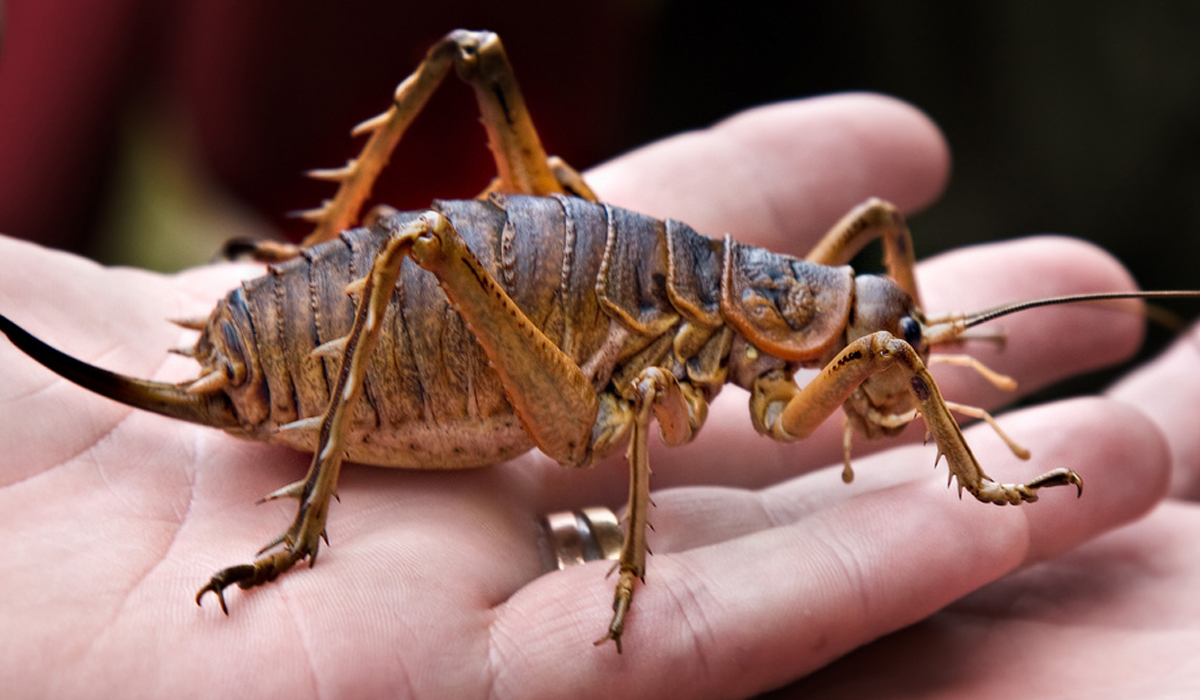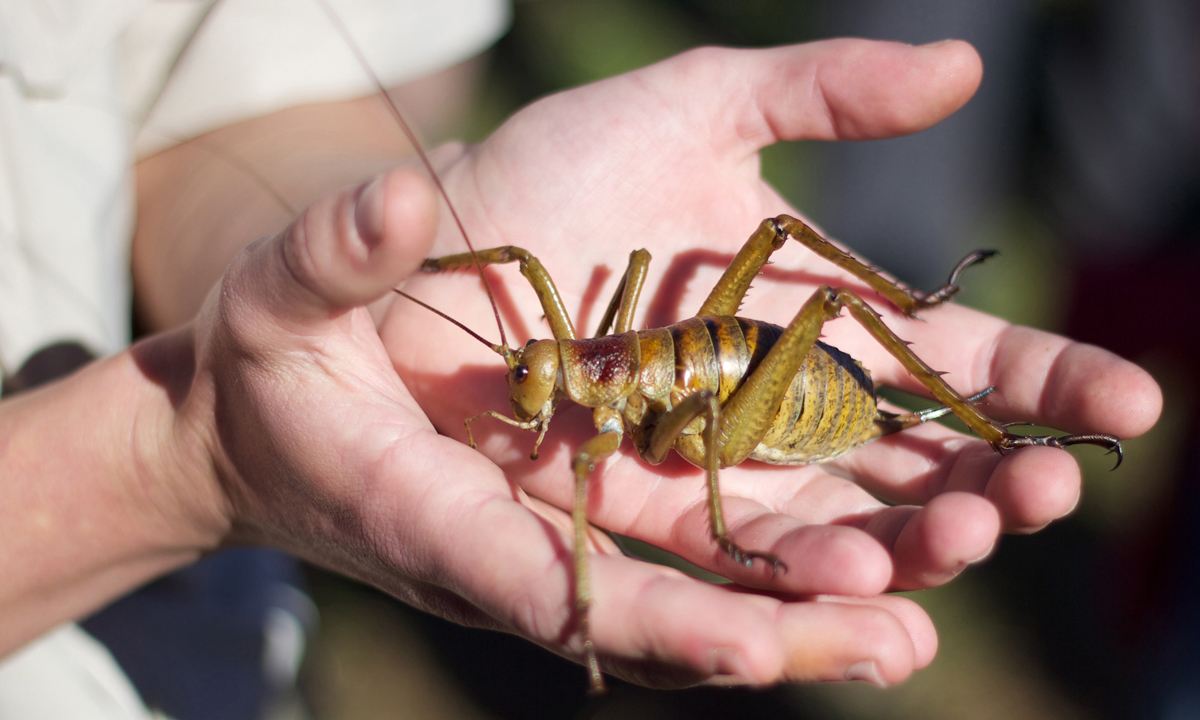
Believe it or not, there are insects here on earth that outweigh the average small rodent.
Giant wetas (from the genus Deinacrida) are colossal cricket-like creatures that have roamed the planet since before the dinosaurs. Native to New Zealand, these unique insects resemble something of an over-sized horned grasshopper with enlarged hind legs. They’re not the most attractive animals around; in fact, their name comes from the Maori word wetapunga, meaning “god of ugly things.” However, they do have something to brag about: giant wetas are the heaviest insects ever recorded.
The heaviest recorded weta — a captive individual measured in 2011 with eggs inside her abdomen — weighed in at a massive 71 grams. That’s heavier than three mice!
One giant weta even went viral after adventurer Mark Moffett photographed it casually chomping on a carrot:
Reaching their massive adult size is no easy feat. The formidable insects have to molt an estimated 11 times before they’re fully grown.

Over 70 known species of weta inhabit New Zealand — but not all are as massive as giant wetas. Other varieties include the tree wetas, cave wetas, ground wetas, and tusked wetas.
Want to find one? Giant wetas (which include 11 species) were once found all across Northland, Auckland, and Great Barrier Island; however, the largest of all — the wetapunga — now only survives on Little Barrier Island (Hauturu-o-toi) in New Zealand.
After the dinosaurs died out, flightless birds and insects like the weta were able to thrive in New Zealand without any mammalian predators to contend with. But eventually, Polynesian rats that were brought over by the Maori people and ship rats that followed European settlers wiped out wetas from several areas. The New Zealand government considers 16 different weta species to be at risk today and has undertaken conservation efforts to recover the dwindling population.




